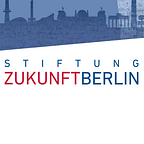Culture, Periphery and the East-West-Imbalance
by Noémi Kiss
In recent months, culture and the arts have suffered severely under pandemic-related restrictions. While artists, freelancers, independent projects, and even publicly funded cultural institutions are struggling for economic survival, we easily overlook the fact that — also in “normal times” — the autonomy of culture is increasingly being called into question. With respect to the immediate effects of this political and economic pressure on the arts, there is a major divide between cultural centers and those operating on the periphery. Most heavily affected by the asymmetric consequences of these pressures are not the trend-setter elites in cultural centers, or the publicly funded (non-)artists on the semi-peripheries, but all those who do not move to the cultural capitals. That is, those who decide to uphold cultural projects on the periphery — where they are most direly needed. Within Europe, there is also a significant East-West divide, not only in terms of the distribution of funding, but also in regard to the autonomy of art.
Noémi Kiss (born in 1974 in Gödöllő) is a Hungarian writer, whose works have been translated into English, German, Bulgarian, Romanian and Serbian. The German press considered Kiss as one of the most promising writers of her generation.
